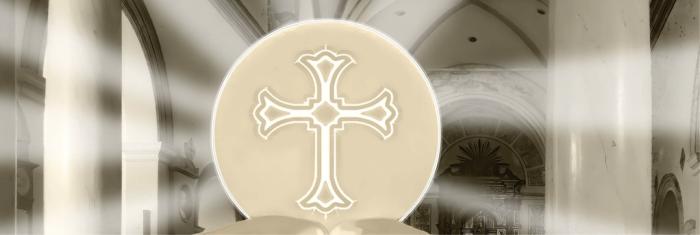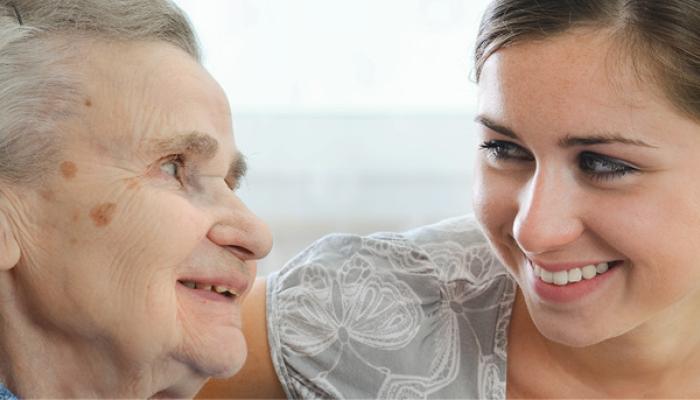
3.48 Is Jesus really present in the Eucharist? What is the Consecration?
During Mass, bread (hosts) and wine are brought to the altar. The priest speaks the same words that Jesus spoke at the Last Supper when he instituted the Eucharist. This moment in the Eucharistic celebration is called the ‘consecration’.
At this moment, bread and wine change into the body and blood of Jesus. This is not just symbolic, but the change happens in reality. If you look at the Host with the eyes of faith, you can recognise Jesus’ Body and Blood in what initially appears to be bread and wine. In the #TwGOD app you will find the words of consecration and the other standard texts of the Mass in many languages.
In what way is the Eucharist a memorial of the sacrifice of Christ?
The Eucharist is a memorial in the sense that it makes present and actual the sacrifice which Christ offered to the Father on the cross, once and for all on behalf of mankind. The sacrificial character of the Holy Eucharist is manifested in the very words of institution, “This is my Body which is given for you” and “This cup is the New Covenant in my Blood that will be shed for you” (Luke 22:19-20). The sacrifice of the cross and the sacrifice of the Eucharist are one and the same sacrifice. The priest and the victim are the same; only the manner of offering is different: in a bloody manner on the cross, in an unbloody manner in the Eucharist. [CCCC 280]
How is Christ present in the Eucharist?
Jesus Christ is present in the Eucharist in a unique and incomparable way. He is present in a true, real and substantial way, with his Body and his Blood, with his Soul and his Divinity. In the Eucharist, therefore, there is present in a sacramental way, that is, under the Eucharistic species of bread and wine, Christ whole and entire, God and Man. [CCCC 282]
What is the meaning of transubstantiation?
Transubstantiation means the change of the whole substance of bread into the substance of the Body of Christ and of the whole substance of wine into the substance of his Blood. This change is brought about in the Eucharistic prayer through the efficacy of the word of Christ and by the action of the Holy Spirit. However, the outward characteristics of bread and wine, that is the “eucharistic species”, remain unaltered. [CCCC 283]
In what way is Christ there when the Eucharist is celebrated?
Christ is mysteriously but really present in the sacrament of the Eucharist. As often as the Church fulfills Jesus’ command, “do this in remembrance of me” (1 Cor 11:24), breaks the bread and offers the chalice, the same thing takes place today that happened then: Christ truly gives himself for us, and we truly gain a share in him. The unique and unrepeatable sacrifice of Christ on the Cross is made present on the altar; the work of our redemption is accomplished. [Youcat 216]
You ought to know what you have received, what you are going to receive, and what you ought to receive daily. That bread which you see on the altar, consecrated by the Word of God is the Body of Christ. That chalice, or rather, what that chalice holds, consecrated by the Word of God, is the Blood of Christ. Through those accidents the Lord wished to entrust to us his Body and the Blood which he poured out for the remission of sins. [St. Augustine, Sermons, No. 227 (ML 38, 1099)]
By partaking of the Body and Blood of Christ, you may be made of the same body and the same blood with him. For thus we come to bear Christ in us, because his Body and Blood are distributed through our members. Thus it is that, according to the blessed Peter, we become partakers of the divine nature (2 Pet. 1:4). [St. Cyril of Jerusalem, Catecheses 22:3 (MG 33, 1100)]





